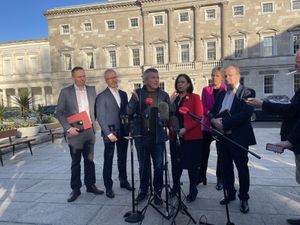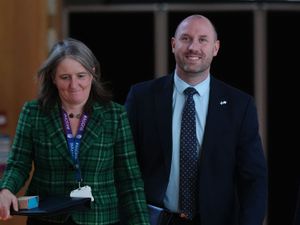Northern Ireland secretary aware of Stormontgate ‘for months’, records reveal
Stormontgate in 2002 led to the suspension of devolution and the reintroduction of direct rule in Northern Ireland.
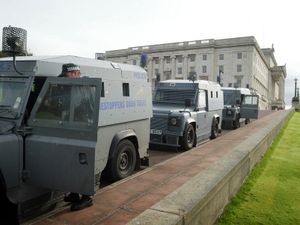
The Northern Ireland secretary knew for “some months” ahead of a hugely controversial police raid at Sinn Fein’s offices, according to newly unsealed records.
On October 4 2002, a large number of PSNI officers raided the Sinn Fein offices at Stormont and unmasked what was claimed to be a republican spy ring at the heart of government. A number of houses were also raided.
The information uncovered throughout the raids was said to have contained sensitive information which could have been used for the targeting of prison and police officers, as well as politicians and civil servants.
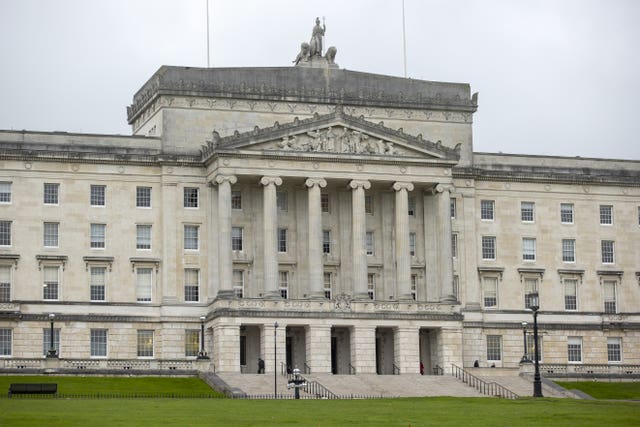
What became known as Stormontgate led to the suspension of devolution and the reintroduction of direct rule when then-first minister and UUP leader David Trimble threatened to collapse the administration.
Minutes from a phone call between then-Northern Ireland secretary John Reid and Ireland’s foreign affairs minister Brian Cowen on the day of the Stormontgate raid are among those recently unsealed by Ireland’s Government.
Mr Reid is said to have told Mr Cowen that he was aware of the issue for some months, and that it had been a factor in a speech he gave on July 24 when he told the House of Commons that the UK government would take new measures on ceasefire breaches, including whether organisations were engaged in training, acquiring weapons – or targeting.
At that time, the secretary of state also indicated to the House that he would be prepared to introduce a motion in the Northern Ireland Assembly to exclude a party associated with a paramilitary organisation that was in breach of the agreement from the executive.
It came amid calls from unionists for Sinn Fein to be excluded from the executive over other recent events.
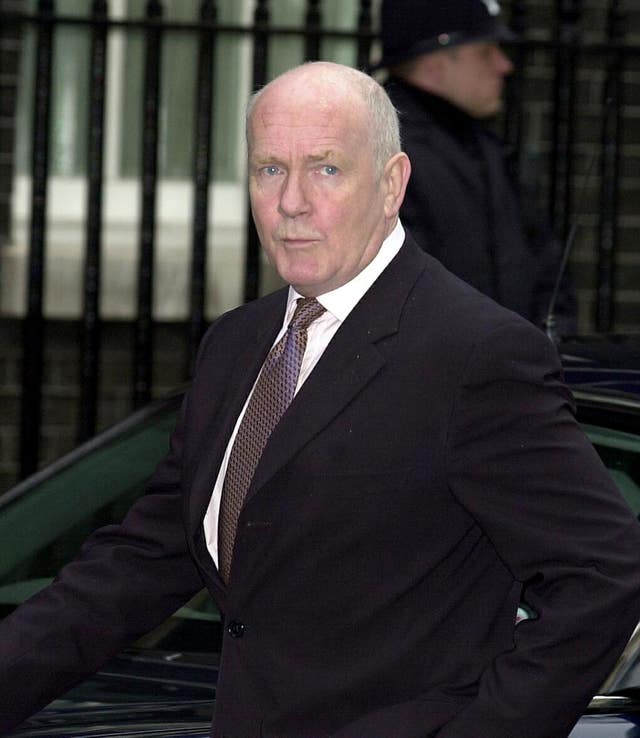
In the minutes of the October 4 call, Mr Reid told Mr Cowen that the raid was “serious” and involved a “former employee of mine” – noted by the officials as the Northern Ireland Office (NIO) messenger.
The secretary of state is said to have told the minister that “the police had to move now for reasons I can’t go into” and that the raids involved “official papers” of varying degrees of sensitivity as well as material that could be used for targeting.
The Irish government was advised that playing down the affair would be “going out on a limb”.
Mr Reid is recorded as saying that pressure should be put on Sinn Fein to apologise over the matter while concern was also expressed that the scandal could be “the final straw” for the UUP.
In the previously confidential note, the Irish officials say that the secretary of state had been keen to focus on the NIO aspect of the case as it was less damaging and that he was trying to keep the information about targeting out of the public domain.
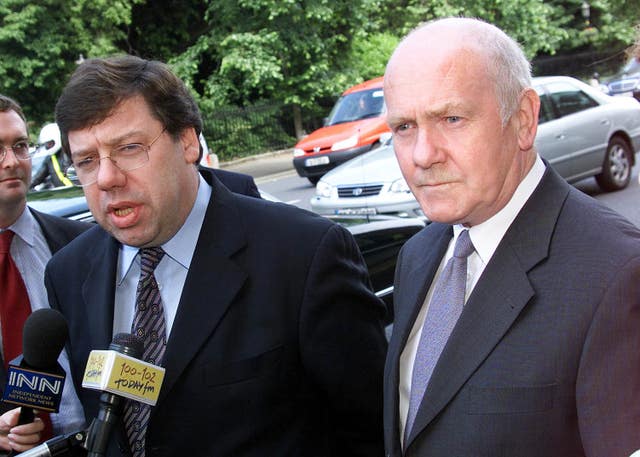
The minister told the secretary of state he would stress there “should be no rush to judgement” in his public comments – a phrase later found in his official statement.
Asked by Mr Cowen if he was under pressure to move for the exclusion of Sinn Fein from the executive, Mr Reid referred back to the new position on judging the state of ceasefires which could lead to a motion on such a matter.
Elsewhere on October 4, Sinn Fein registered deep concern with the department over what it called a “carefully orchestrated mess”.
Prime minister Tony Blair’s chief of staff also called the Irish Department of Affairs, describing the incident as a “rather large problem”, with Jonathan Powell further describing the situation as “pretty grim”.
While a departmental write-up of the call says “it all happened” before the July 24 speech, Mr Powell is recorded as expressing doubt in the credibility of this position.
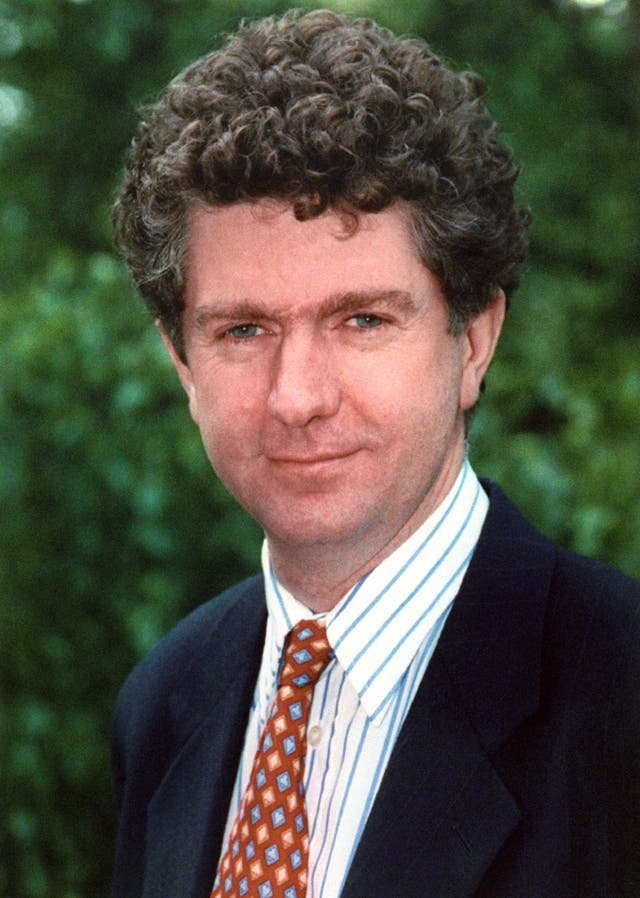
Mr Blair’s senior adviser said that the UK government had received a report that Mr Trimble would resign in protest that day, which ultimately did not happen.
Mr Powell is also said to have told the department that the timing of the raid was a police operational matter.
Three men were arrested: Denis Donaldson, a key administrator in the office; his son-in-law Ciaran Kearney; and a civil servant, William Mackessy – who had previously worked as a messenger in the Northern Ireland Office.
According to a different departmental document, an official met with Mr Kearney in 2003, and recorded the accused as claiming he and Mr Donaldson had been “victims of a power struggle within the security forces over intelligence gathering”.
Charges against the men were dropped in 2005, when the Public Prosecution Service said its prosecution was no longer in the public interest.
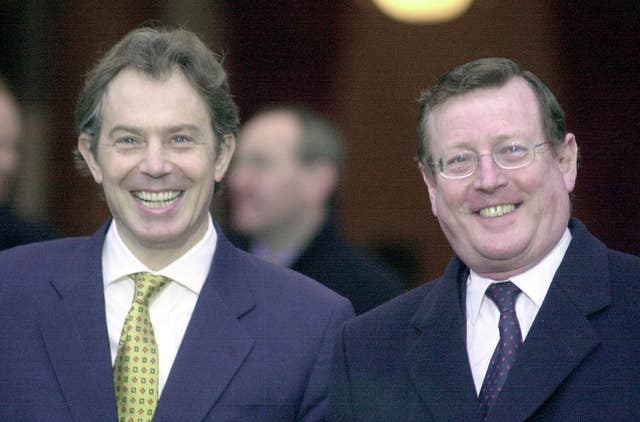
Shortly thereafter, Mr Donaldson publicly admitted to being a British agent at the core of the Republican movement.
He claimed the Stormontgate affair was a “scam and a fiction” created by Special Branch.
Mr Donaldson was later shot dead and the Real IRA claimed responsibility.
The Stormont raid came one day after the Labour Party conference concluded on October 3, and the minutes read that Mr Cowen offered to Mr Reid “that it was lucky that since the affair had been around for so long that it had not come to light until only after the conference had ended”.
The Northern Ireland Assembly was suspended later that month amid mounting pressure for Sinn Fein’s exclusion from the executive, with Mr Reid announcing direct rule from Westminster.
Senior Sinn Fein figures contacted Irish officials on October 18 following suspension, saying that Mr Blair had made a “massive mistake” in laying down “ultimatums” to the IRA, the documents show.
The Sinn Fein representatives said the party was out of the picture in relation to arms, adding that the situation was “very dangerous” and could only be seen as a victory for unionists.
– This article is based on documents in 2024/130/6



